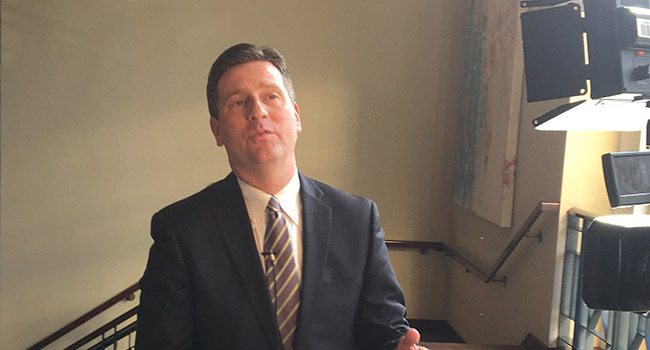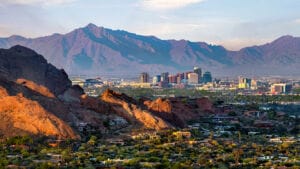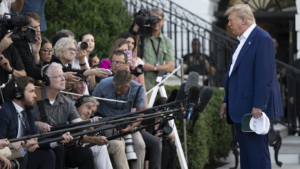Mayor Greg Stanton today said Phoenix is “writing the greatest chapter” in the city’s history through its pivot toward an innovation economy, turnaround on sustainability, improved trade relations with Mexico and transformative investments in transit.
At his sixth State of the City address, Stanton reported that the city’s investment in a more innovative economy is paying dividends with biosciences thriving and the number of tech companies downtown having quadrupled over the past five years.
“That’s what we want for our community: to fuel that spirit of ingenuity and innovation that has defined the greatest chapters in our city and our state’s history,” Stanton said. “Phoenix is a place where breakthroughs happen…where cures are discovered…where we push the limits of human knowledge.”
Stanton added that once-forgotten areas like the Warehouse District are experiencing a renaissance with creative companies flocking in, and the city’s cultural scene has rapidly become one of the Southwest’s premier live music hot spots.
Noting that “innovation breeds innovation,” the number of tech companies downtown has grown from 67 five years ago to more than 260 now, Stanton said. New arrivals include coding education giant Galvanize, which partnered with Phoenix to renovate a massive warehouse for its new campus, as well as space for several other start-up companies like Clearvoice, Coplex and Picmonic.
Stanton also announced a new South Mountain Technology Corridor for advanced manufacturing and emerging industries along the new Loop 202 alignment in West Phoenix.
Over the past five years, Phoenix has experienced a remarkable turnaround on sustainability and climate resilience, passing ambitious 2050 goals to become a zero-waste, carbon-neutral city. The City’s 50-acre Resource Innovation Campus will soon empower local entrepreneurs and manufacturers to turn materials bound for the landfill into new products as part of a broad circular economy strategy. And the city’s newly opened one-of-a-kind composting facility will do the same thing, processing hundreds of thousands of tons of compostable waste into fertilizer that can be re-sold.
With Lake Mead barely at 40 percent capacity and the Colorado River listed as one of the most endangered in the nation, Stanton said Phoenix must continue to be a regional leader on smart long-term water policy. System-wide solutions like the City’s recent historic agreement with the Gila River Indian Community will help conserve water in Lake Mead, and partnering on resiliency projects to protect forest watersheds in Oak Creek, Verde Valley and Coconino Forests benefit both Phoenix and rural communities, Stanton said.
Investments in transit have spurred the economy, including $9 billion of investment along the light rail line, which only increase as Phoenix implements voter-approved expansions from Stanton-backed Proposition 104. The residents of South Phoenix will be the next to benefit with the expansion of the South Central line. The City Council last week approved a $50 million agreement with Valley Metro for design and pre-construction on the five-mile extension.
“I couldn’t be more excited that we’re delivering on the promise we made,” Stanton said.
Stanton said that the challenges faced by Phoenix over the past five years were difficult to overcome, particularly raising a collapsed economy and smoothing our state’s strained relations with Mexico, the state’s largest trading partner, in the wake of Senate Bill 1070. Now exports support 100,000 jobs in Arizona, with the potential for many more if Phoenix and the state can keep the momentum heading in the right direction.
“Mexican consumers and tourists are now returning to Arizona, and Mexican companies are re-investing and creating jobs here,” Stanton said. “We can’t let antagonism from the White House toward Mexico change who we are in Phoenix.”
While Phoenix “is stronger than ever,” Stanton outlined challenges that threaten the city’s and the entire state’s progress. Speaking with CEOs and business leaders while trying to lure jobs to Phoenix, Stanton said he is consistently met with concern about the quality of education in Arizona and the lack of investment in public schools.
“There is a crisis facing our public schools,” said Stanton, who campaigned for Proposition 1-2-3, but called lack of further investment by the State Legislature since “a broken promise”
Stanton challenged the room full of business leaders to fight for public schools by renewing and increasing Proposition 301, which will cause a $600 million cliff for school funding in 2020 if Arizonans don’t act.
“We must be brave enough to ask for more for our kids,” Stanton said. “The time to get it done is now.”




